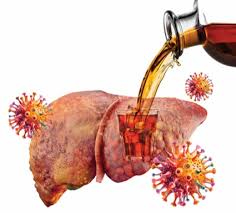Drinking alcohol occasionally seems normal to people but the effects it imposes on their body’s nutritional absorption remain unclear. Your body struggles to process essential nutrients when you drink in excess although one occasional refreshment appears safe.
Each serving of alcohol contains energy that gives no nutritional value to the human body. The energy that alcohol supplies does not contain any essential vitamins or nutrients which your body requires. Consuming excessive amounts of alcohol causes weight gain while producing no medical advantages to compensate for those extra calories. The follow-on effect is that alcohol hinders food digestion resulting in a reduced ability of your body to process the nutrients in your food.
The major drawback of alcohol involves its ability to prevent essential nutrient absorption by the body. The vitamins B1, B12, C, D along with essential minerals such as calcium, magnesium and zinc tend to get decreased in absorption when you consume alcohol. The proper functioning of your energy system and bone structures as well as brain health and immune system health depends on these nutrients. Lacking these essential nutrients will result in weariness along with weakness and might lead to long-standing health issues.
Drinking large quantities of alcohol causes excessive stress on your liver which performs the key roles of detoxification and nutrient breakdown. The continuous intake of alcohol slowly harms liver tissue until your body stops processing food nutrients effectively.
Consuming large amounts of alcohol results in changes to your regular pattern of eating. When alcohol enters the body it triggers desires for unhealthful food selections including both greasy snacks and sugary treats. Few individuals typically do not eat their meals while drinking this leads to decreases in necessary nutritional elements. Drinking large quantities of alcohol frequently leads to decreased appetite making it difficult to consume proper meals.


Alcohol also dehydrates the body. Excessive urination happens when you drink alcohol which results in water loss as your body gives up essential minerals. People experience tiredness and dizziness and headache upon excessive alcohol consumption because alcohol leads to dehydration. Dehydration produces sensations of slowness along with negative consequences to your general health condition.
The nutritional effects of alcohol become less severe when you start with a balanced meal and drink plenty of water while sticking to moderate alcohol portions. The consumption of water alongside selecting foods rich in nutrients allows your body to recuperate. To reach optimum health in the future you need to stay away from alcohol while learning to control your alcohol consumption.
The moderate use of alcohol does not lead to serious damages but overconsumption can disturb your dietary needs and general health status. Shooting for limited alcohol intake alongside body care brings benefits which maintain your energy levels and full health status.
